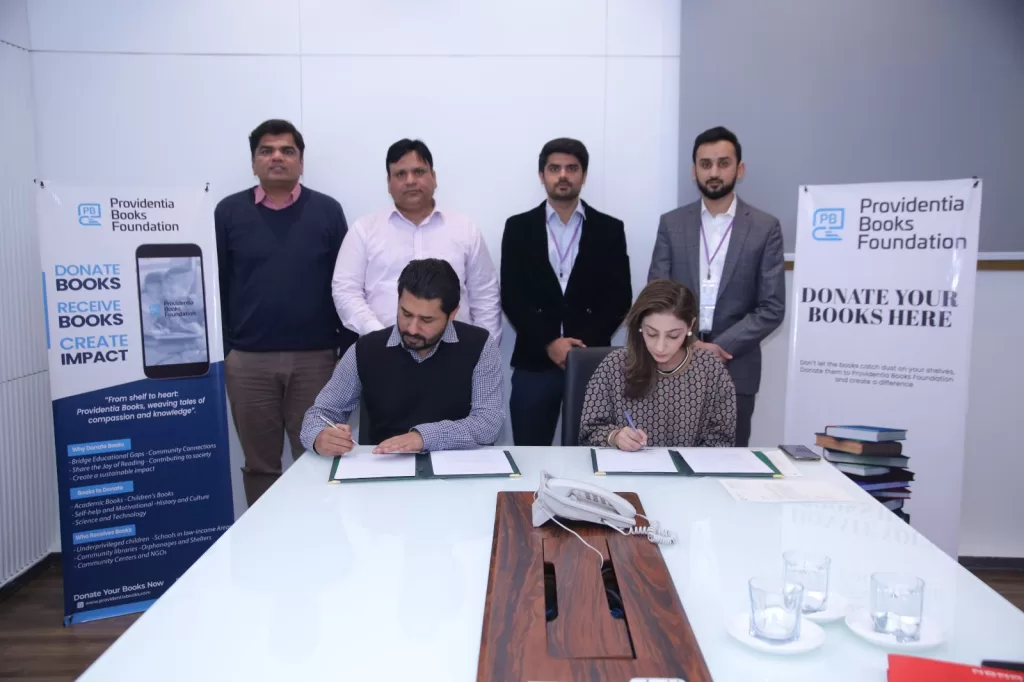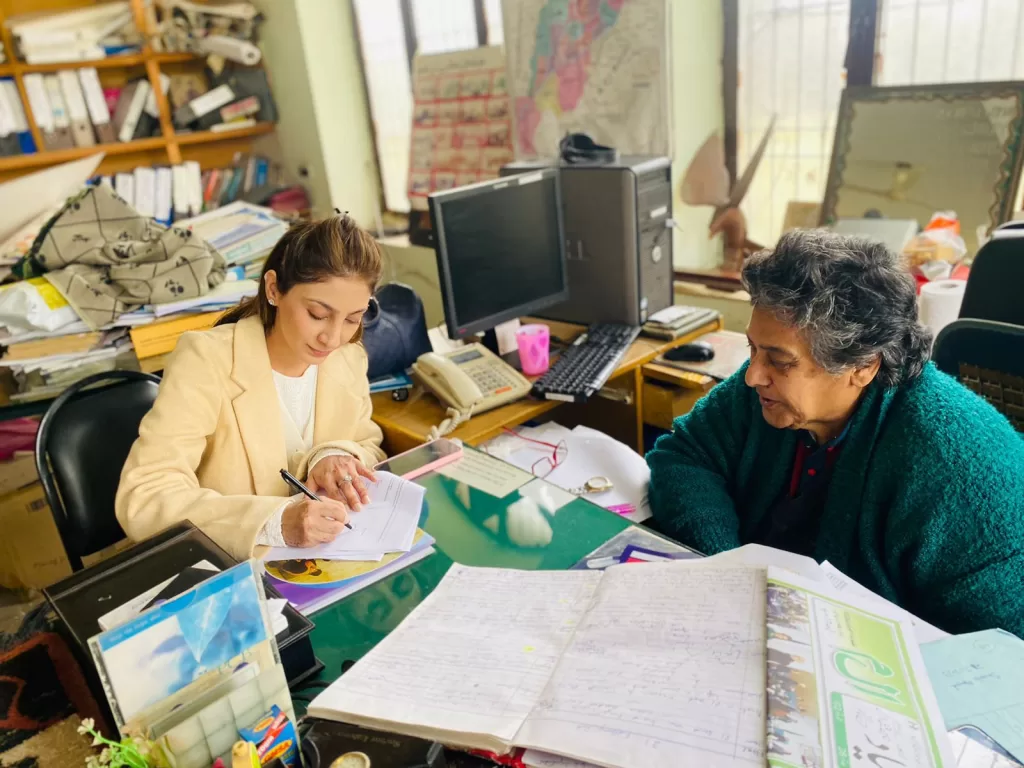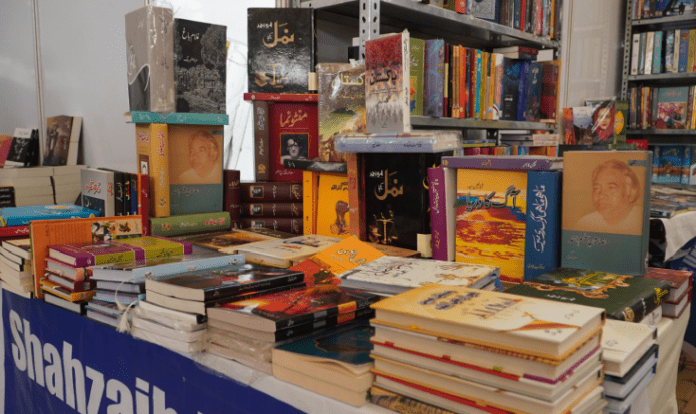In developing countries, the challenge of out-of-school children and widespread illiteracy creates a significant barrier to progress. However, prioritizing education and fostering a love of reading, particularly among marginalized children, holds the power to transform lives. In Pakistan, the limited budget and priorities of the government do not provide education to children of poor families. According to Education Secretary Waseem Ajmal Chaudhry, the actual literacy rate is 59.3% which means 40% of the population is illiterate. It is also important to note that despite all the hue and cry over decades regarding the low budget of health & education sectors, Pakistan is spending less than 2pc of its GDP on education. Pakistan has the highest out-of-school-children in the world i.e. 32% with more girls than boys deprived of education. This is about over 23 million children who are not attending school.
The low quality of education for those attending school is another alarming situation, which is not addressed at any level. These issues need to be resolved by resetting our priorities by shifting focus to the education sector. This is only possible through adequate funding and patronage of the education sector in the greater interest of the country. By providing access to quality education and encouraging book reading, poor children gain the tools to break the cycle of poverty. Literacy empowers them to navigate the world with confidence, understand their rights, and access further education or vocational training. Books become gateways to knowledge, sparking curiosity, expanding their horizons, and nurturing critical thinking skills. This newfound knowledge empowers them to become agents of change, not just for themselves, but for their families and communities. Investing in education and a love of reading is an investment in a brighter future for developing nations, paving the way for a generation equipped with the skills and knowledge to thrive.
Providentia Books Foundation is an online platform operated and managed by Amaani Sehgal, allowing users (donors) to submit books to desirous users (beneficiaries) to improve the reading achievement of everyone. In Pakistan, access to books and educational materials can be a major hurdle for children from underprivileged backgrounds. Amaani Sehgal, founder of Providentia Books Foundation, witnessed this firsthand during a visit to The Citizens Foundation (TCF) schools. She recognized the stark difference in learning opportunities between children from wealthy families and those facing financial constraints. Inspired to bridge this educational gap, she created Providentia Books Foundation, an online platform dedicated to fostering a love of reading and learning among children in need. Driven by a passion for literacy and lifelong learning, she envisions Providentia Books Foundation as a platform for positive change. By facilitating book donations and promoting reading, Providentia Books Foundation empowers individuals to contribute to their communities, improve educational equity, and build a stronger foundation for future generations.
Providentia Books Foundation operates as a registered 501(c)(3) non-profit organization. It functions as a digital book bank, connecting book donors with children seeking educational materials. Individuals with spare books can easily contribute through the user-friendly mobile application. Providentia Books Foundation also collaborates with book publishers and other NGOs to organize book distributions in disadvantaged communities. Partnerships are a key element of Providentia’s success. The organization works with NGOs like the Bunyad Foundation and Akhuwat Foundation, alongside prestigious educational institutions like The Millennium Education (TME) and Salamat International Campus for Advanced Studies (SICAS). These collaborations not only expand book access but also nurture a culture of giving. Providentia Books Foundation motivates students at partnered institutions to donate books through colourful donation boxes on campus, fostering empathy and social responsibility. For those who prefer online giving, the Providentia Books Foundation app is available on both iOS and Android platforms. This also caters for books other than textbooks including reference books, recreational books, books on career guidance, competitive exam-related books, and the like.
The culture of book reading is diminishing with time, and the importance of libraries and access to recreational books is not realized in Pakistani society. Books open a new world to its readers and literacy is not limited to formal education only. Informal education and literacy can transform a society irrespective of the government’s efforts. Community mobilization for book reading and knowledge sharing is essential as in Pakistan there are few libraries. There are areas which are not even accessible by vehicles, camels and horses are used to reach there. People in such areas deserve special attention and innovative ideas are required to deliver books to them.
In Pakistan, the grim situation of libraries depicts our priorities, books for the young generation and reading habits are need of the time as we are going through one of the toughest as a nation, whether it is economic security or social security.
Also, the war against terrorism can only be combated through literacy. Dr. Raees Ahmad Samdani in his PhD thesis analyzed that only one in four colleges and a mere 481 out of 223,000 schools in Pakistan possess a library. There are only 8,092 libraries in Pakistan. This lack of libraries not only hampers access to knowledge but also signifies a broader failure in nurturing a culture of inquiry and learning.

Providentia Books Foundation has collaborated with the Oxford University Press (OUP) to secure and deliver around 2 lacs textbooks (which the OUP shreds at the end of the year) to deserving children This is an example for others, and organizations like the Pakistan Library Association and the All Pakistan Publishers and Booksellers Association should join hands with Providentia Books Foundation for this noble cause. Donating books and setting up small libraries for children in deserving areas to promote education will bring good returns in a few years. It is like an investment in future. One of the great successes of the Providentia Books Foundation is collaborating with the Millennium Education (TME). It has paved the way for educational excellence and innovation amidst the challenges faced by Pakistan’s educational landscape. Founded in 2007 by Dr. Faisal Mushtaq, TME has continuously set new standards for academic excellence and holistic development.
Dr. Faisal’s visionary leadership, coupled with his commitment to education, has propelled TME to the forefront of the educational arena in Pakistan. The institution’s focus on transformative learning experiences and international collaborations has garnered widespread acclaim, earning Dr. Faisal prestigious honours such as the Tamgha-i-Imtiaz. Through its stand-alone universities like the Millennium Institute of Technology and Entrepreneurship (MITE) in Karachi and The Millennium University College (TMUC), TME is pioneering a paradigm shift in education, preparing students to thrive in a rapidly evolving world. With plans for expansion in strategic locations across the country, including Islamabad, Rawalpindi, Peshawar, Mardan, Abbottabad, Nowshera, Attock, Sargodha, Jhelum, Sialkot, Faisalabad, Lahore, Karachi, and Mirpur AJK. They are inaugurating a school in Hyderabad for better inclusion and reach out to every corner of the country.

After successfully educating pupils all over Pakistan, now they are motivated to educate children with a life-changing habit of helping those who have no access to books. Their collaboration with Providentia Books Foundation is a groundbreaking initiative in respect of Corporate Social Responsibility (CSR). Their efforts provide books to the marginalized sector and will also inspire other organizations to contribute to this cause. Providentia Books Foundation is providing a platform to TMC and other wealthy institutes to contribute to building a literate nation. By mobilizing the community and tapping into the generosity of individuals, this project can transform the lives of many as education is the only way to progress. The government of Pakistan can facilitate the private sector to build libraries the way it does for the beautification of cities as a part of their CSR. Local governments must be obliged to spend at least 2% of their budget on libraries.
In this great initiative of investing in future of Pakistan, one must not forget the most deserving Madrassah (religious schools) students, who have no access to books and technology. To bring them into the mainstream and equip them with the world’s knowledge, providing free books and access to libraries is mandatory. It is time to engage them and introduce them to the modern education along with the religious knowledge. There are 53 registered Madrassahs in Islamabad only, and more than 22,000 registered madrassas (with many more unregistered) teaching more than 2 million children in Pakistan. It is one of the biggest philanthropy networks and these children deserve access to all kinds of books for a better future.

The initiative of Amani Sehgal is remarkable. There is an urgent need for community engagement and outreach programs to promote a culture of reading and enhance the impact of these initiatives. Collaborating with local community leaders, educational institutions, and NGOs can facilitate the organization of reading events and workshops that encourage active participation and engagement with literature. Leveraging digital platforms such as library websites and social media can also help in fostering community engagement and organizing virtual reading sessions. Promoting local authors, providing study spaces, establishing mobile libraries, and implementing other innovative initiatives are essential tools for empowering the youth of Pakistan and nurturing a thriving reading and library culture in the country. Through concerted efforts and collaborative partnerships, Providentia Books Foundation and other stakeholders can work towards creating a more literate and culturally enriched progressive society in Pakistan. The government of Pakistan is not able to cater for all poor children, it is the responsibility of every Pakistani citizen living in Pakistan or elsewhere in the world to work for a better future for less privileged fellow humans.





